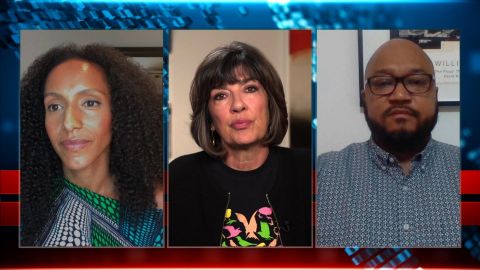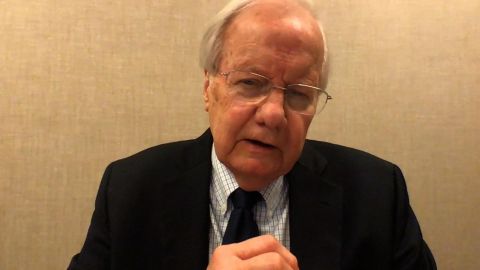Read Transcript EXPAND
AFUA HIRSCH, JOURNALIST AND AUTHOR, “BRIT(ISH)”: There is no reasonable explanation as to why anyone would tolerate a society where this still happens. And I think that’s the question people have been asking themselves. If they didn’t go out onto the streets and protest and march and demonstrate, and I was there this weekend in London as thousands and thousands of people turned out, if we didn’t do that, we would be sending a message that this was a tolerable reality. That the deaths of black people, as Bill Moyer so powerful put it, modern day lynchings were something that we could live with. And I think the message is coming through loud and clear that we can’t. And it is a different situation in the U.K., it’s a different kind of history but a highly interconnected one. And just as Bill Moyers was saying, we haven’t been honest about that history here. The roots of this systemic racism that has affected generation after generation of black British people has never been properly acknowledge or understood. And I think that that is the first thing that really needs to happen here, is a level of education, because we haven’t even had the sophistication or the language or the space to have honest conversations. When people like me have raised matters in greed (ph) historical record, I have been attacked with racist abuse in the mainstream media. So, the idea that you shoot a messenger to protect the kind of fragility of this white privilege and power has been very normalized until now. And that’s what is starting to incrementally change.
CHRISTIANE AMANPOUR: We’re going to get to some of those examples in a second. But I wanted to ask you, Eusebuis McKaiser in Johannesburg, because, you know, the world country looks at your country, Eusebuis, and thinks, wow, you know, we got out of a systemic institutional, essentially, white supremacist rule of the majority by a minority, and we are, you know, the standard wearers forbearers and reconciliation and a post racial world. But clearly, the truth is somewhat different. And we’ve had a huge number of protests in South Africa in solidarity with George Floyd as well. Sum up for us why this is so important in South Africa as well.
EUSEBUIS MCKAISER, BROADCASTER AND AUTHOR, “RUN RACIST RUN”: Thank you for having me back on the program, Christiane. I have been invited over the last week on a number of international programs in the hope that South Africa can have a good new story to give to the world. But I’m sad to report from Johannesburg that the opposite is true. That the key lesson here in South Africa and the key reason why the protests in the U.K. and the USA resonate particularly with black South Africans is because we are an example that you can have political change, you can even have a black-led government and you can still have the remnants of a colonial regime of the past pretty much in place 20-odd years after the at vent of advent of democracy.
About This Episode EXPAND
Christiane speaks with journalist and former White House Press Secretary Bill Moyers about how this moment fits into history. She also speaks with authors Afua Hirsch and Eusebius McKaiser about the U.K.’s history of racism and injustice. Walter Isaacson speaks with Rep. Mike Johnson about President Trump and racial injustice.
LEARN MORE


